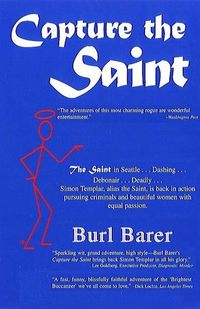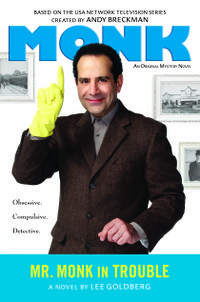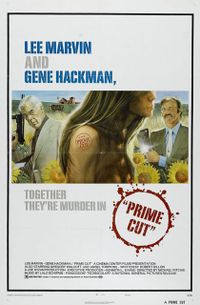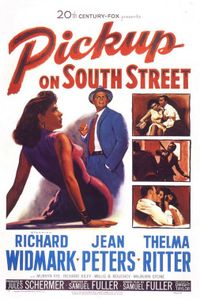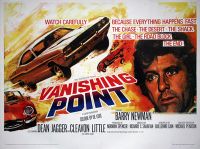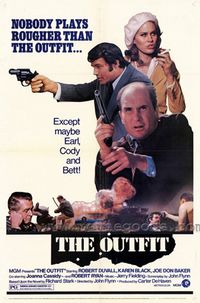From the MWA:
The Board of Mystery Writers of America voted unanimously on Wednesday to remove Harlequin and all of its imprints from our list of Approved Publishers, effective immediately. We did not take this action lightly. We did it because Harlequin remains in violation of our rules regarding the relationship between a traditional publisher and its various for-pay services.
What does this mean for current and future MWA members?
Any author who signs with Harlequin or any of its imprints from this date onward may not use their Harlequin books as the basis for active status membership nor will such books be eligible for Edgar® Award consideration. However books published by Harlequin under contracts signed before December 2, 2009 may still be the basis for Active Status membership and will still be eligible for Edgar® Award consideration (you may find the full text of the decision at the end of this bulletin).
Although Harlequin no longer offers its eHarlequin Critique Service and has changed the name of its pay-to-publish service, Harlequin still remains in violation of MWA rules regarding the relationship between a traditional publisher and its various for-pay services.
MWA does not object to Harlequin operating a pay-to-publish program or other for-pay services. The problem is HOW those pay-to-publish programs and other for-pay services are integrated into Harlequin's traditional publishing business. MWA’s rules for publishers state:
"The publisher, within the past five years, may not have charged a fee to consider, read, submit, or comment on manuscripts; nor may the publisher, or any of the executives or editors under its employ, have offered authors self-publishing services, literary representation, paid editorial services, or paid promotional services.
If the publisher is affiliated with an entity that provides self-publishing, for-pay editorial services, or for-pay promotional services, the entities must be wholly separate and isolated from the publishing entity. They must not share employees, manuscripts, or authors or interact in any way. For example, the publishing entity must not refer authors to any of the for-pay entities nor give preferential treatment to manuscripts submitted that were edited, published, or promoted by the for-pay entity.
To avoid misleading authors, mentions and/or advertisements for the for-pay entities shall not be included with information on manuscript submission to the publishing company. Advertising by the publisher's for-pay editorial, self-publishing or promotional services, whether affiliated with the publisher or not, must include a disclaimer that it is advertising and that use of those services offered by an affiliate of the publisher will not affect consideration of manuscripts submitted for publication."
Harlequin's Publisher and CEO Donna Hayes responded to our November 9 letter, and a follow up that we sent on November 30. In her response, which we have posted on the MWA website [NOTE: I HAVE POSTED IT BELOW], Ms. Hayes states that Harlequin intends as standard practice to steer the authors that it rejects from its traditional publishing imprints to DellArte and its other affiliated, for-pay services. In addition, Harlequin mentions on the DellArte site that editors from its traditional publishing imprints will be monitoring DellArte titles for possible acquisition. It is this sort of integration that violates MWA rules.
MWA has a long-standing regard for the Harlequin publishing house and hopes that our continuing conversations will result in a change in their policies and the reinstatement of the Harlequin imprints to our approved list of publishers.
Frankie Y. Bailey,
Executive Vice President, MWA
MWA’s Official Decision: That because Harlequin's for pay publishing business violates MWA's rules for approved publishers, MWA takes the following action: First, Harlequin shall be removed from MWA's list of approved publishers upon the adoption of this motion; Second, that all current active status members of MWA whose status is based upon books published by Harlequin shall remain active status members; Third, that MWA decline applications for active membership based upon books published by Harlequin pursuant to contracts entered into after the effective date of this motion; Fourth, that books published by Harlequin pursuant to contracts entered into prior to the adoption of this motion shall be eligible for the Edgar® Awards, except that books published by DellArte Press shall not be eligible for the Edgar® Awards regardless of when such contract was entered into; and Fifth that books published by Harlequin pursuant to contracts entered into after the adoption of this motion shall not be eligible for the Edgar® Awards.
MWA's Executive Vice-President, and her or his designates, are directed to continue discussions with Harlequin in an effort to reach an agreement that would allow for Harlequin to be an approved publisher according to MWA's rules.
Harlequin Letter in Response to MWA Letters
Dear Ms. Bailey,
Thank you for your letter of November 30 and for the opportunity to address your concerns prior to your board meeting.
Harlequin takes its relationship with the Mystery Writers of America very seriously. In response to your letters, I would like to share our perspective on the changing book publishing industry and Harlequin’s recent moves to keep pace with and lead innovation in our market. It is our hope that sharing our point of view will demonstrate our respect for the MWA and explain our motivation behind the launch of Dellarte Press.
Publishing models are changing and Harlequin needs to experiment within those models
We are sure you would agree that today’s book publishing industry is undergoing significant transformation. “Mega trends” affecting the industry include, but are not limited to, the questions raised by Google surrounding ownership of copyright, the rise of eBooks as a viable commercial format, and the swell of user-generated content throughout the Internet. Amazon’s growing influence in nearly all aspects of book publishing – from a book’s conception to its ultimate delivery in a reader’s mailbox – can be interpreted as a source of increasing pressure on traditional publishing models.
In the wake of these changes, self-publishing has emerged as a new force in the publishing industry, providing a forum for thousands of authors who would not secure a contract with traditional publishers. According to Bowker reports, 285,000 new titles and editions were self-published in the US last year, a number that exceeds the 275,000 titles published by traditional houses. Harlequin sees the rapid growth in self-published titles, up 132% since 2007, as validation that writers perceive self-publishing as a viable path to literary fulfillment. In recent weeks, Harlequin has heard from countless writers, either directly or via blogs, that self-publishing played an important, positive role in their writing careers. For example, Naleighna Kai, author of best-selling Every Woman Needs a Wife, posted the following in h
er November 28 blog entry:
"Self-publishing venues have made it easy for authors to get a book into print and into the hands of avid readers. There are a great deal of authors who started on that path and eventually swept into a lane which put them on the New York Times Best-seller’s list. Case-in-point, the Romancing the Stone series written by Catherine Lanigan writing as Joan Wilder, was on the NY Times for several weeks, then eventually made into a movie. Robert T. Kiyosaki was turned down by several major houses before he published his own book, Rich Dad, Poor Dad, then hit it big on the NY Times list. Louise L. Hay’s self-published book, You Can Heal Your Life, was on the NY Times list for thirteen consecutive weeks. She went on to publish other powerhouses such as Wayne Dyer, Deepak Chopra, Suze Orman, Doreen Virtue, Sandra Brown, Tavis Smiley and many others. And it goes to show that what’s in, what’s popular, what’s perfect to publish with major houses is subjective."
"Self-publish, learn the industry, set some goals, build a name, then spread your wings. The people mentioned in this article inspired me to follow in their footsteps…I’m happy that I self-published first as it allowed me the opportunity to learn and grow."
Harlequin views its participation in Dellarte Press as an opportunity to participate in this space, supporting aspiring authors as they test the publishing waters. We feel compelled to respond to new publishing models and ensure that writers continue to see Harlequin as a leading publisher in the formats most relevant to them and their evolving readers.
Other publishers and writers associations are experimenting with self-publishing
Our competitors’ recent moves into self-publishing (e.g., Harper Collins via Authonomy and Random House’s past investment in Xlibris), encouraged us to look beyond our traditional publishing footprint. Given that Harlequin is a very small player relative to others in the Top 6 publisher ranks, doing otherwise would be foolish on our part. Fortunately, a number of writers’ associations have been supportive of these experiments. We are not alone in our acceptance of self-publishing, as evidenced by the following statement from the American Christian Fiction Writers we received on November 22, 2009 with respect to our Steeple Hill imprint.
"So many of the large publishing houses are extending self-publishing imprints that the boards of the ACFW have been forward-thinkers regarding our ever-changing industry. Because of this, I’m happy to say that I’ve been assured that ACFW has rewritten their Book of the Year contest guidelines so that authors of Steeple Hill books will continue to be able to enter the contest. In addition, as ACFW Conference Director, I’m pleased to tell you that we welcome the Steeple Hill editors at our conference, and hope that all of you will be able to attend."
We are pleased that the International Thriller Writers association has also taken this view, as communicated to its members in the following recent statement:
"Although we don't plan to make a formal statement at this time, our position is that ITW doesn't intend to get involved in Harlequin's business. In addition, our members who are Harlequin/MIRA authors remain honored and valued ITW members with all the privileges and rights of membership. No ITW members are going to be expelled or denied awards because of actions taken by their publisher beyond their control–that would be contrary to our charter."
Amid the reaction from a small, but vocal, group of authors, it is easy to forget that Dellarte Press represents a small experiment relative to the size of the greater Harlequin organization. It may be worth noting that Ninc has elected to apply its membership criteria to specific publishing programs, not a publishing corporation as a whole. Specifically, Ninc informed us of the following change on November 24, 2009:
"As our Bylaws remain constant, we have amended the more detailed qualifications for membership, listed in the P&PM. These qualifications are now concerned not with the publishing corporation as a whole, but concentrated on the particular program within the corporate for which the current or prospective member writes novel length fiction."
Harlequin believes that its standing within writers’ associations should reflect the 1,200 titles that we publish under traditional models each year and not a separate and distinct publishing arm that represents a very small portion of our activity.
We believe in informed choice for writers
We believe that writers are best served when they make informed choices. As such, Harlequin’s rejection letter templates will soon be modified to encourage the author to consider the wide range of publishing options now available to aspiring authors including submitting to another house, resubmitting to Harlequin, ePublishing, self-publishing, or working with Dellarte Press.
In her November 18, 2009 article, Maddie James of the Romance Novel Examiner took the view that self-publishing rounds out a writer’s available choices:
"Whether an author chooses traditional print publishing, a digital publishing press, or self-publishing, is totally up to the author. The author knows where they are in their career, how they want to move their career forward, and what steps to take to do so. It would be unwise to omit exploring all of the options."
Harlequin wishes to help expand this range of options, alternatives about which writers must be well informed before making decisions. We think that your membership would benefit from improved understanding of these options, in large part because they are not going away.
Harlequin has made substantial modifications to our Manuscript Critique Service and self-publishing programs
On November 9, 2009, Lee Goldberg, chair of your Membership Committee, expressed concerns about the Manuscript Critique Service referenced within eHarlequin.com’s writing guidelines content. As of November 30, 2009, our Manuscript Critique Service is no longer available and does not appear alongside the writing guidelines featured on our website.
On the matter of our self-publishing program, we have responded to our authors’ concerns by changing the program name so that it is clearly a separate business from Harlequin’s traditional publishing programs.
Our request of the Mystery Writers of America
When your board meets to discuss Harlequin’s standing with the Mystery Writers of America, we ask that you consider the following:
(a) the inevitable change sweeping through the book publishing industry
(b) the prevalence of self-publishing, a business model already pursued by our competitors, and the growing acceptance of its role on the part of several mainstream writers associations
(c ) the fact that Harlequin publishes 1200 titles per year under our traditional publishing programs, including many writers who are members of your association, and that we do not believe they should be excluded from full status because of a small, separate business line with which we are experimenting
(d) the opportunity for writers to make informed decisions about their publishing options
(e) the modifications that we have made recently to our publishing programs.
With this context in mind, we ask that Harlequin remain on the MWA list of approved publishers. If the MWA decides it cannot recognize Harlequin as an approved publisher at this time, we strongly encourage the MWA to retain Harlequin authors’ eligibility for the 2010 awards while we continue this discussion, particularly because their books were published on a traditional platform before Dellarte Press launched. The Romance Writers of Ame
rica has taken this position, a source of great relief to our writers. In addition, it may be helpful for you to know that the RWA board will discuss this matter in late January and you may wish to consider similar timing.
Thank you for the opportunity to share our view of the evolving book publishing industry and Harlequin’s place within it. We hope to have provided useful insight into the innovations driving publishing forward and growing the presence of writers in the marketplace. While self-publishing represents a small experiment within Harlequin’s much larger business, we are excited to offer talented writers a range of alternate paths to commercial success and personal fulfillment. I truly believe that we share a common goal of accelerating the careers of mystery writers, today and for many years to come.
Should you wish to hear more from Harlequin on this or any other matter, we would be pleased to cooperate in any way possible. Please let us know if you would find additional information on our publishing activities useful or if you would like me to speak with the Board and/or executive.
Sincerely,
Donna Hayes
Publisher and Chief Executive Officer, Harlequin Enterprises Ltd.
